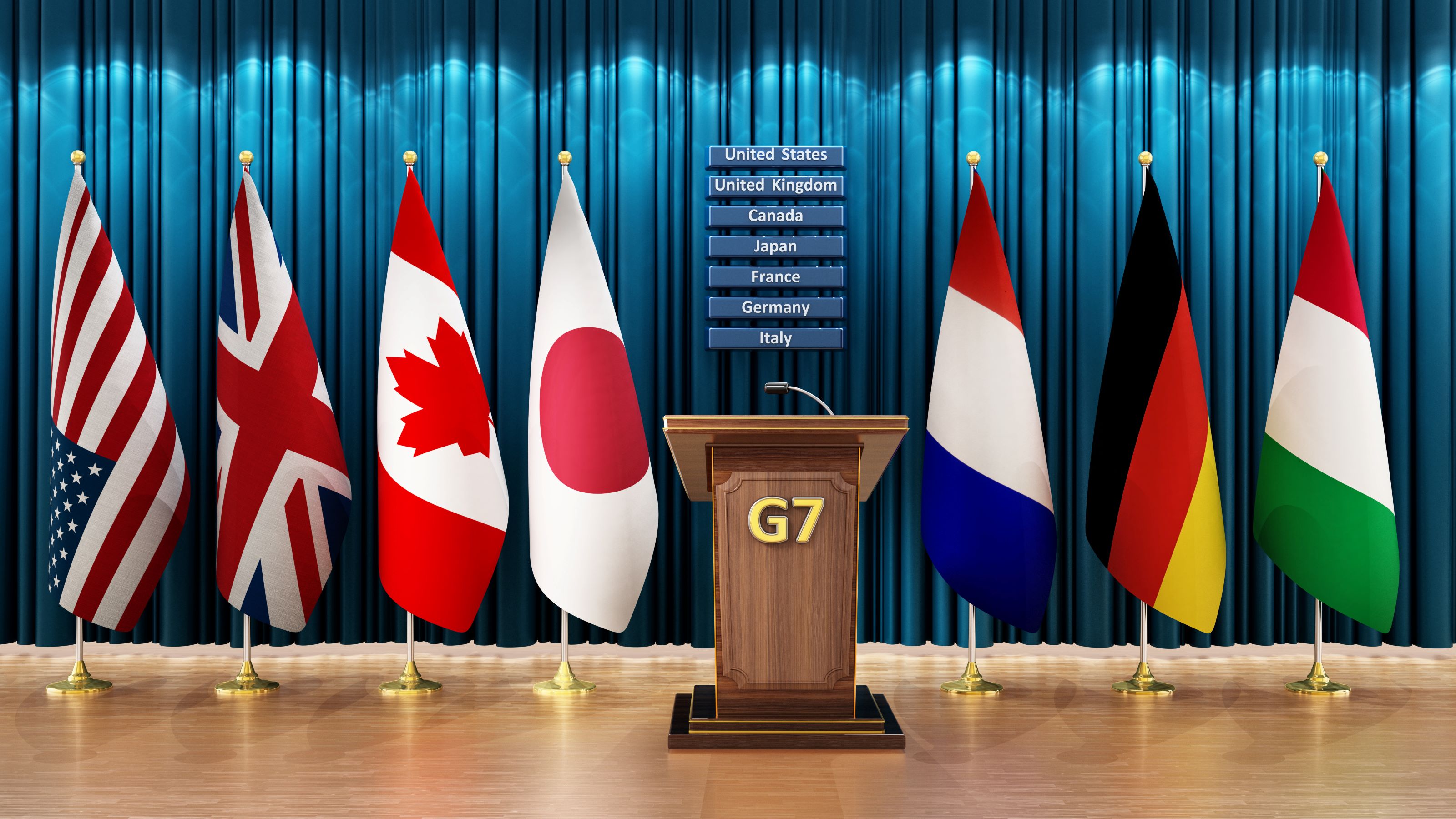
Members of the G7 concluded their meeting in Hiroshima, Japan on Sunday (21 May) by further tightening sanctions on Russia, while also presenting a united front to China, warning the world’s second-largest economy against “economic coercion”. G7 leaders acted to stiffen sanctions against Moscow, pledging to restrict exports to Russia that could help its invasion of Ukraine.
Euractiv reports a statement by G7 leaders that restrictions would cover exports of industrial machinery, tools and technology useful to Russia’s war effort, and said efforts would be pursued to limit Russian revenues from trade in metals and diamonds.
The package represents a partial step-back from a near-total ban on exports to Russia, according to Bloomberg, which had reportedly run into feasibility issues.
Diamond block
In particular, the UK, US and EU are forging ahead with plans to sanction the $4bn Russian diamond sector, clamping down on another source of revenue for Russian president, Vladimir Putin.
UK prime minister, Rishi Sunak, told the BBC he wants to ensure “Russia pays a price” for the war.
London already sanctions Russian state-owned diamond producer Alrosa and has lifted tariffs on Russian diamonds by an additional 35%, reports the FT.
The UK government said it was preparing individual designations targeting another 86 people and companies as well as the energy, metals and shipping industries.
A senior US official said it was “upping the economic pressure on Russia”, with new sanctions to more than 300 Russian individuals, ships and aircraft and said the US would add another 70 Russian groups to its blacklist barring companies from exporting products with American technology to Russia.
Strongest China condemnation
The G7 summit also focused on another geo-political rival: China.
A communique issued after talks in Hiroshima stressed the need to reduce reliance on trade with China and warned against “economic coercion” from Beijing.
The FT describes the end of summit communique as the strongest condemnation by the world’s advanced economies of China.
The joint statement said G7 members were “seriously concerned” about events in the East and South China Seas, and “strongly oppose any unilateral attempts to change the status quo by force or coercion”.
Although it stressed that they “were prepared to build constructive and stable relations” with Beijing, China condemned the summit as promulgating “smears and slander” and registered a protest with the Japanese ambassador.
China also ordered key infrastructure companies to stop buying from US chipmaker Micron.
Chips diversification
Japan looks set for major investment from chipmakers looking to diversify their production away from Taiwan, which is currently the world’s foremost supplier but which is facing ongoing threats of disruption from China.
The FT reports that seven of the world’s largest semiconductor makers have set out plans to increase manufacturing and deepen tech partnerships in Japan.
Sunak also announced a semiconductors partnership with Japan prior to the summit, including commitments to pursue ambitious R&D cooperation and skills exchange.
The partnership will slot into UK’s new chips strategy that was launched last Friday (19 May), as reported by the IOE&IT Daily Update.


